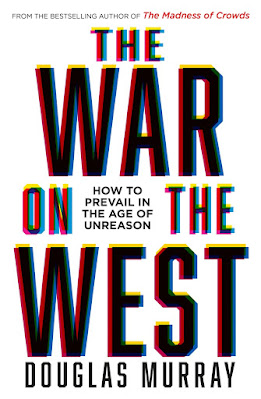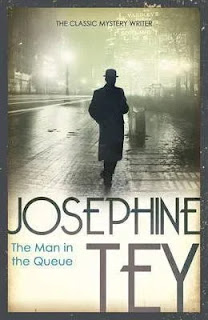An
Episode of Sparrows is another perceptive and sensitive novel by Rumer Godden.
Godden’s writing is spare and unsentimental with a gritty realism, but also
much beauty.
In
the preface to this book she wrote:
'Finally
the time came when I had to tell myself miserably, “You have squandered,
muddled, and wasted everything, everything from opportunity to money. Wasted.”
There
I was wrong. After the war years of hard work, poverty, and loneliness in
Kashmir I needed that space of gaiety, companionship, even luxury, and I have
come to believe that nothing is ever wasted; out of mistakes, or through
mistakes, something quite worthwhile can come, in my case the seed of another
novel.’
Living
in the busy whirl of post-war London in a tiny little jewel of a house, she
spent as much time as she could in the nearby park where she got to know the
antics of the ‘London sparrows’- children from the poorer streets nearby. She
picked her way through the bombed-out sections of London where weedy flowers
pushed their way up through broken masonry and blossomed in the rubble.
Godden
wrote that all her stories have themes underlying them, not actually stated, but
there all the same. An Episode of Sparrows grew out of her stay in London but
it wasn't until ten years later, in 1955, when she started to write it.
There
are multiple characters in this story but the central figure, Lovejoy Mason, is a girl of about 11 years of age whose life held little love and no joy.
Lovejoy’s
mother worked on the stage and had casually left her with Mrs Crombie and her
husband, Vincent, a superb chef wasting away in an impoverished part of town with virtually
no clientele, while she went off all over the place for work. From time to time
the neglectful mother would return to her daughter who was devoted to her. Then
there came a time when she didn’t come at all.
‘Mrs
Crombie was kind, Vincent was very kind, but for Mrs Crombie there was really
only Vincent and for Vincent there was only the restaurant. Lovejoy was a
little extra tacked on.
She
had never heard of a vortex but she knew there was a big hole, a pit, into
which a child could be swept down, a darkness that sucked her down so that she
ceased to be Lovejoy, or anyone at all, and was a speck in thousands of socks,
‘Millions,’ said Lovejoy, and then there was something called ‘no-one.’
The
story revolves around a secret garden. Lovejoy who, with the help of some other London sparrows,
steals some good soil from the rich neighbourhood gardens to start their own.
Godden’s clever use of shifting perspectives brings in all the other supporting
characters and gives us insight into their motivations, reactions and
thoughts.
Olivia
and Angela are two
unmarried sisters who live in the more prosperous area near Lovejoy. Olivia,
the eldest, is dominated by her beautiful, high energy and opinionated younger
sister. When Olivia finds a small footprint in the garden bed that points to the soil thieves, she says nothing and her heart is stirred to find out more about the Sparrows.
“It
was not the absence of a man that Olivia regretted so much, though she could
have wished that both she and Angela had married…that blank in her life was not
the worst, but I wish children were not so unknown to me…Olivia divined
something in children, not in her nieces and nephews…who were precocious and
spoilt, but in the children who were let alone, real children…they seemed to
her truer than grown-ups, unalloyed; watching them, she knew they were vital;
if you were with them you would be alive, thought Olivia.”
As
Lovejoy planted her garden in the bombed ruins of a churchyard, her soul grew
along with her seedlings…
‘At
night now, when she went to bed, she did not lie awake feeling the emptiness;
she thought about the garden, the seeds, their promised colours. She had never
before thought of colours…except in clothes, thought Lovejoy; now she saw
colours everywhere, the strong yellow of daffodils…the deep colours of
anemones; she was learning all their names; she saw how white flowers shone and
showed their shape against the London drab and grey. She was filled with her
own business. She had never had her own business before; directly after
breakfast, on her way to school, she went to the garden and was thinking about
it all day long.’
She
spent most of her time waiting…for her mother to wake up in the mornings;
waiting for her while she tried on clothes or went shopping; waiting outside
pubs.
‘Why
did people take it for granted that children had all that time to waste? I want
to garden, not wait, she thought rebelliously.’
Rumer
Godden’s writing is similar in some aspects to Elizabeth Goudge’s. They both
were both masters of characterisation and understood human conflict. Godden’s
style is terse, Goudge tends to be rambling and more philosophically inclined
but both were adept at thematic undertones. I think Rumer Godden had a greater
insight into children - The Greengage Summer is another example of her way of
seeing from a child’s perspective.
Although
both of the books just mentioned are focused on children, there are some
themes that make them more suited to older readers. Greengage has some obvious
mature content, An Episode of Sparrows only has one aspect that would make me
hesitate to give it to a younger person - Lovejoy’s mother would entertain her
male friends in her room while her daughter sat forlornly on the steps outside.
It was a passing observation so it would probably go over a child’s head.
However, I’d hold off until about age 14 because there is an underlying
richness that may not be appreciated or understood by a younger child. From an
adult point of view it is a story that has staying power and lingers in your
mind and heart afterwards.
Both
authors have been unjustly neglected but Elizabeth Goudge has made a comeback
in more recent years and from what I’ve read this has been largely initiated by
book bloggers. (Yay!) Rumer Godden’s works need a similar revival.
Biography | Rumer Godden










